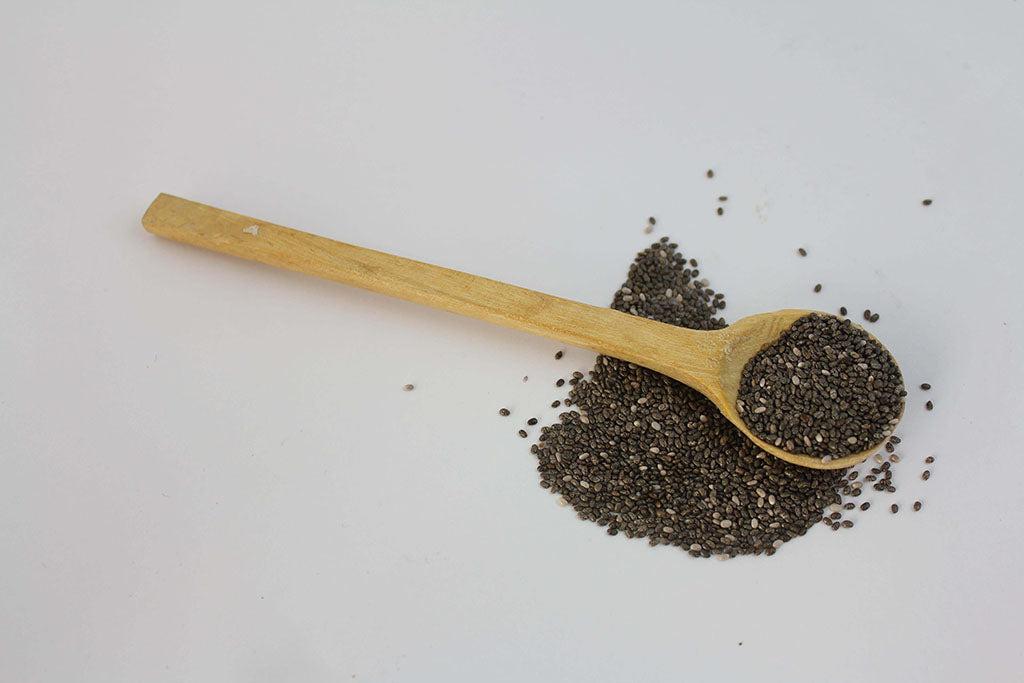In this blog, we discover if dogs can have chia seeds and whether they’re as good for dogs as they are for humans.
Can Dogs Eat Chia Seeds?

Chia seeds are derived from the Salvia hispanic plant, which is native to Central America. They are tiny and black in color and are considered a superfood due to their high nutritional value. And yes, they are perfectly safe (and very nutritious!) for dogs to eat, just like they are for humans.
Are Chia Seeds Good For Dogs?
Chia seeds are loaded with essential omega 3 fatty acids, fiber, protein, magnesium, zinc, iron, potassium, phosphorus, and calcium.
They also help dogs feel fuller for longer, so can make a great little addition to an overweight doggy’s meals. They can also contribute to boosting the strength of cells in the body, promoting a shiny coat, aiding in maintaining ocular health, and helping regulate blood sugar levels.
Chia seeds don’t need to be ground down before they’re fed to a dog as they’re so small already, but it may be worth rinsing them in water to give them a wash before serving.
Because of their high fiber content, you shouldn’t overfeed dogs chia seeds; a teaspoon for small dogs, and two teaspoons for large dogs on top of one of their meals per day should suffice.

You should always take it slowly when introducing any new food to a dog to avoid upsetting their stomach – particularly with puppies. Feed a very small quantity of chia seeds to your dog and monitor their response before considering continuing to feed low quantities of it to your dog. As with humans, all dogs will react differently to different foods so always be mindful of this when trying them on new foods, snacks, and treats regardless of whether they’re deemed safe. If you have any concerns over your dog’s health after they consume chia seeds, contact your vet.
If you’re wondering what foods and beverages you shouldn’t give to your dog, check out our PetLab Co. guide below which lists all items that are known to be toxic to dogs so you know which foods to avoid allowing your dog to eat:

Also read: Seeds for Dogs: Flaxseed, Sesame and Hemp
Sources
Author Painter, Stacy “Can Dogs Eat Chia Seeds?” Healthy Paws, Mar 02. 2020 https://blog.healthypawspetinsurance.com/can-dogs-eat-chia-seeds
Author Slome, Gabbie “Can Dogs Eat Chia Seeds? A Superfood To Add To Your Dog’s Diet” Dog-Eared by My Ollie, May 01. 2016 https://blog.myollie.com/ingredient-spotlight-chia-seeds/
 S
S



